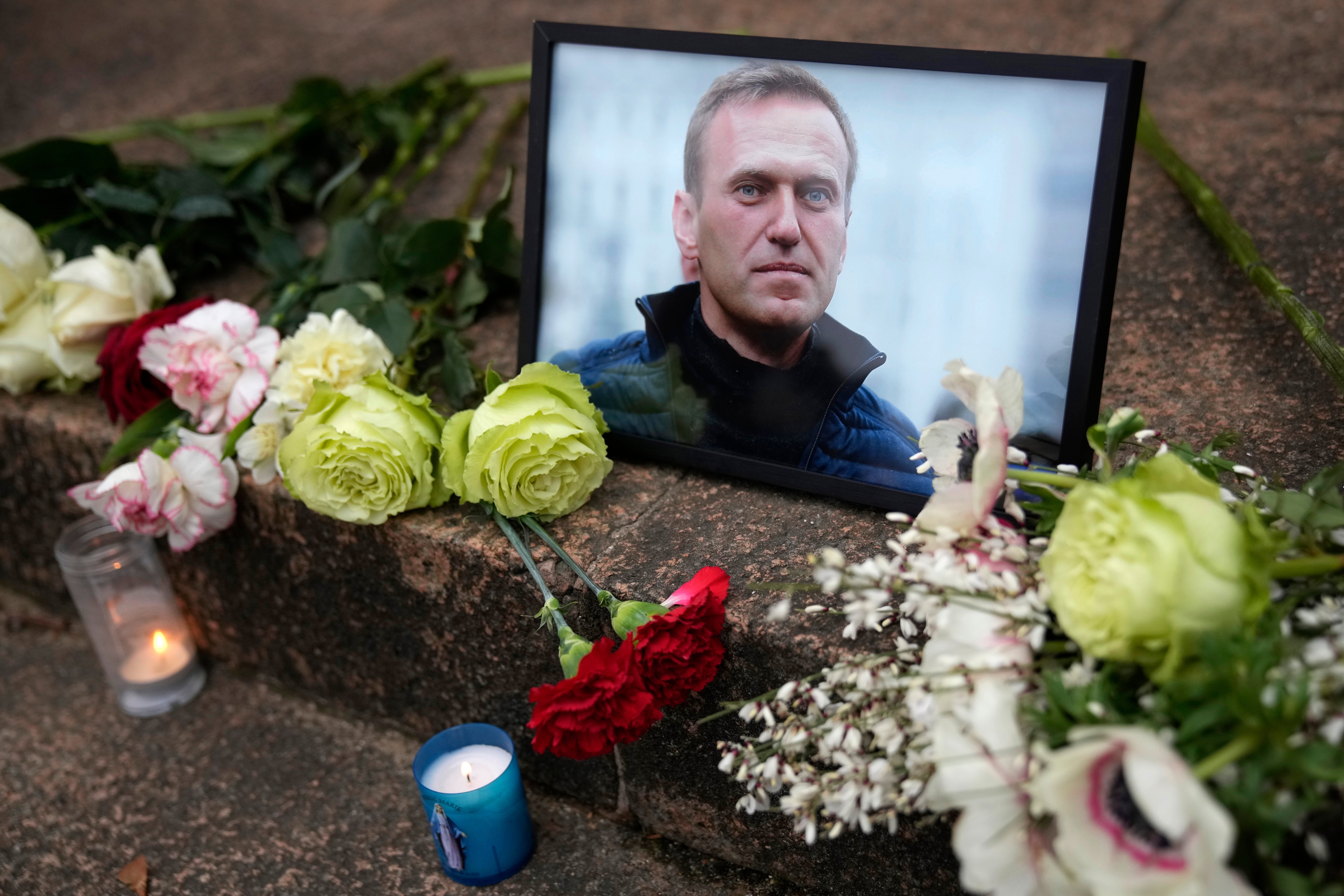How Alexei Navalny’s death could backfire for Putin
The Kremlin may hope his death serves as a deterrent to those toying with opposition activism, but in truth it makes the Russian president’s fiercest critic a hero and a martyr, writes Mary Dejevsky


It could be said that the fate of Alexei Navalny was sealed on 17 January, 2021, the day that he decided to return to Russia after five months of treatment and convalescence in Germany following a suspected poisoning in Siberia.
His return was an act of extraordinary courage on the part of someone who knew he was a marked man, but saw himself first and foremost as a Russian, whose mission and future made sense only in his home country, even if he was behind bars.
His death could be cast as a state-sponsored assassination. The Kremlin, or more accurately, Vladimir Putin, was intent on eliminating Navalny – the man he never named – even more so after an apparent first attempt was thwarted by a professionally minded pilot and a quick-thinking medical team in Omsk.
It is important to establish exactly how and why Navalny died. The Prison Service issued a prompt report, citing a blood clot and suggesting natural causes (so they say). What is irrefutable is that Navalny fell victim to a system that has no time for opposition.
His transfer in December to a remote prison camp at the coldest time of year was in itself a death sentence for a man whose health, as his family and friends had warned, was deteriorating.
That is exactly what happened to Sergei Magnitsky – the accountant for the US-UK businessman, Bill Browder, who died of neglected pancreatitis in a Moscow prison in 2009. No one actually needs to be subject to a death sentence, formal or informal, to die in a Russian prison. For someone whose health is already not of the best, the conditions will do the rest.
So, does the Russian president stand to benefit from Navalny’s death? Putin has lost his most effective opponent – but does Navalny’s death strengthen or weaken his position?
Navalny was, or became, a politician in a modern mode – such as Russia had not seen before. He and his young team were masters of modern media. Campaigning initially on local corruption issues, he struck a chord at many levels of Russian society.
He had a reach – geographical and across social classes – that exceeded that of every other Kremlin opponent. He took 27 per cent of the vote, which was seen as a surprisingly strong showing, when he stood for Moscow mayor in 2013 – a rare election he was allowed to stand in.
Putin will doubtless be re-elected president at elections to be held in mid-March. Navalny was never going to be on the ballot paper. And yet, his death could now seriously backfire for Putin.
The Kremlin may hope it serves as a deterrent to those who might be toying with opposition activism, but in truth, it makes the Russian president’s fiercest opponent a hero and a martyr. His human failings and political foibles will be stripped away to leave a portrait of unsullied opposition to be added to the pantheon of Soviet-era dissidents, whose destiny he seemed in many ways to replicate.
So, why alert us to his demise now? Well, the Kremlin might be banking on the fact that the timing of Navalny’s death will not have such a negative effect on its reputation and freedom to operate in the world as it might once have done. We must prove them wrong.
With all the different sanctions imposed by the US and the EU following Russia’s invasion of Ukraine almost two years ago, with the virtual end to normal trade exchanges and normal diplomatic contact, it is true that the West has little to no leverage with Russia.
But Navalny’s death, in what is regarded as Russia’s harshest prison camp, can be cited as proof of the brutal nature of the Putin regime. It must be raised in international forums. For many, the war in Ukraine has already supplied evidence enough of how the Kremlin treats its enemies.
Out of fear or misguided loyalty, for the past two years Russians have largely rallied around the flag. For now, Navalny will be more the West’s martyr than Russia’s. We must hope that changes.
In the meantime, the UK needs to use whatever remains of its diplomatic clout to plead in the strongest possible terms for the freedom of another dissenter, who, like Navalny, chose to return to his homeland when he did not have to.
Vladimir Kara-Murza is a dual Russian-UK national who was sentenced last year to 25 years in prison on essentially political charges, including opposition to the Ukraine war.
Like Navalny, he is reported to be in declining health. It is too late to save Navalny, but his death should be a spur to more active efforts from the UK on behalf of Kara-Murza.
Join our commenting forum
Join thought-provoking conversations, follow other Independent readers and see their replies
Comments
Bookmark popover
Removed from bookmarks